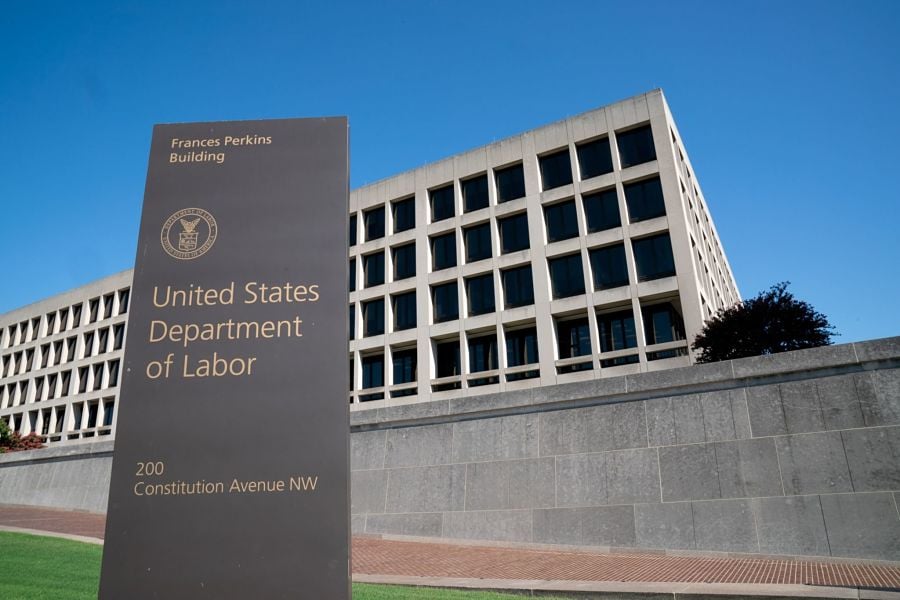

Financial industry trade groups face a big challenge in their efforts to protect the status of brokers and insurance agents who operate as independent contractors — a Department of Labor that’s determined to make more workers employees of firms.
The DOL Thursday published in the Federal Register a proposed rule that would make it more difficult for employers to designate workers as independent contractors. In an announcement earlier this week, Labor Secretary Marty Walsh said the regulation is designed to combat the misclassification of employees as independent contractors, which “deprives workers of their federal labor protections, including their right to be paid their full, legally earned wages.”
Companies that would be most directly impacted are those that use so-called “gig workers,” such as Uber and Lyft. But the proposal could also affect financial professionals who operate as independent broker-dealers and independent insurance agents.
“Our biggest issue is ensuring that Main Street investors have access to financial advice from independent producers by preserving the option for them to remain independent,” said Michael Hedge, director of government relations at the National Association of Insurance and Financial Advisors.
Dozens of groups like NAIFA will file comment letters before the Nov. 28 deadline for public input on the proposal. But their ability to persuade the DOL to modify the rule could be limited.
“My instinct would be that we would look for a carve-out for financial professionals,” Hedge said. He acknowledged that would be tough to achieve in the rule.
DOL wants “to move forward with this,” Hedge said. “I don’t see them taking their foot off the gas.”
Jim Coleman, a partner at Constangy Brooks Smith & Prophete, doubts DOL will make distinctions between different professions.
“I would imagine the Biden DOL would not be comfortable with having different rules for different segments of the economy,” Coleman said. “That would be a hard sell. I wouldn’t anticipate that the final rule would be significantly different from the proposed rule.”
The DOL proposal would rescind an independent-contractor rule that was promulgated in the last weeks of the Trump administration and then upheld by a federal court when the Biden DOL originally tried to vacate it. Financial industry groups like NAIFA and the Financial Services Institute, which represents independent broker-dealers, prefer the Trump rule for employee classification.
The Trump approach gives greater weight to whether a worker exercises control over job duties and profit and loss of the operation. The Biden proposal would “restore the multifactor, totality-of-the-circumstances analysis” to determine whether a worker is an independent contractor under federal labor law, the DOL said in a statement.
“The [Trump] rule was a step forward because it brought clarity and the promise of consistency in application of the economic realities test to the independent financial services industry,” FSI spokesperson Allison Kuehner Mutschler said in a statement. “We will engage with the Department of Labor regarding our concerns in our vigorous pursuit to defend our members’ independent contractor status.”
The DOL proposal wouldn’t immediately upend the professional lives of independent broker-dealers who are affiliated with Cetera Financial Group, said Mark Quinn, the firm’s director of regulatory affairs.
Cetera advisers can choose to hang out their own shingle. They can sell products from the Cetera platform as long as they follow applicable securities laws, but they have the latitude as independent professionals to run their shops as they see fit and pursue outside business activities.
“[They] don’t want to be an employee,” Quinn said. “They believe the independent model is best for them.”
But he is concerned that the DOL proposal is a harbinger of further efforts to change labor law to force more independent contractors to become employees. The House last year passed a bill, the Pro Act, that included a worker-classification provision. But it has not been taken up by the Senate.
The DOL proposal “is part of a broader narrative,” Quinn said. “It’s a drumbeat” that could become louder if Democrats maintain their slim House majority and increase their razor-thin advantage in the Senate in the November elections.
“If Democrats controlled both houses [of Congress], it’s a pretty good bet some of this [legislation] would pass,” Quinn said. “It only takes one or two seats to completely change the balance. This is largely a political issue. We’ve encouraged our advisers to stay engaged on this.”
The legislative process would give the industry another opportunity to achieve a carve-out for advisers, as happened in California with a bill that included dozens of exceptions.
“Looking for a legislative fix would be the natural progression” after rulemaking, Hedge said.
Looking ahead to 2024, the presidential election will also help determine independent-contractor policy, which has changed under former President Obama, Trump and Biden.
“It bounces back and forth, depending on who’s in the White House,” Coleman said.

Surveys show continued misconceptions and pessimism about the program, as well as bipartisan support for reforms to sustain it into the future.

With doors being opened through new legislation and executive orders, guiding clients with their best interests in mind has never been more critical.

Meanwhile, Stephens lures a JPMorgan advisor in Louisiana, while Wells Fargo adds two wirehouse veterans from RBC.

Large institutions are airing concerns that everyday investors will cut into their fee-bargaining power and stakeholder status, among other worries.

Fights over compensation are a common area of hostility between wealth management firms and their employees, including financial advisors.
Orion's Tom Wilson on delivering coordinated, high-touch service in a world where returns alone no longer set you apart.
Barely a decade old, registered index-linked annuities have quickly surged in popularity, thanks to their unique blend of protection and growth potential—an appealing option for investors looking to chart a steadier course through today's choppy market waters, says Myles Lambert, Brighthouse Financial.
